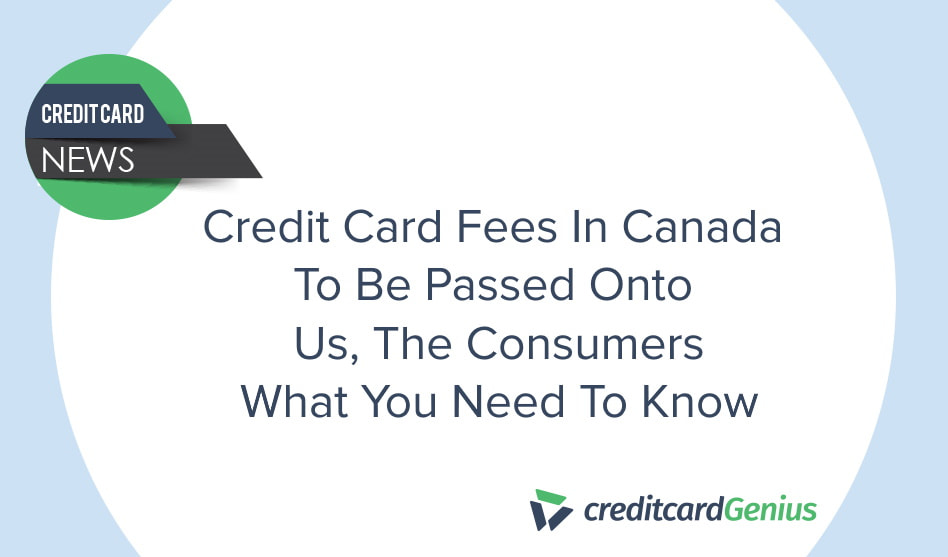Since October 6, 2022, merchants are permitted to tack on credit card surcharge fees to your bills in Canada (with the exception of Quebec). That's right. The credit card interchange fees will be passed onto us, the consumers.
As if the rising tides of inflation weren't suffocating us enough, the news of adding on another charge of up to 2.4% isn't exactly welcome. This is especially true knowing that most mid-level credit cards only get you rewards of 1% or 2%.
We'll take a closer look at what these optional credit card surcharge fees mean and how to avoid them.
Key Takeaways
- Canadian merchants can add an optional surcharge of up to 2.4% on all purchases made by credit card.
- If the merchant charges this fee, they must display it at the point of sale.
- This law has been in place since October 2022, but implementation doesn't seem to be as widespread as was once feared.
Never miss an amazing deal again + get our bonus 250+ page eBook for FREE. Join 50,000 other Canadians who receive our weekly newsletter – learn more.
All about the increased credit card fees in Canada
Since October 6, 2022, Canadian merchants nationwide were able to adopt the process, with one notable exception: Quebec. Thanks to consumer protection laws in la belle province, Quebec-based merchants do not have the option to implement this surcharge.
In all other provinces, the new regulation allows merchants to charge either the cost of accepting the credit card or 2.4%, whichever is less. This surcharge is to be tied to the act of paying with a credit card, not added to the good or service itself – which should mean you can opt to use debit in places where they have a credit card surcharge.
Merchants can also decide to apply the surcharge to specific credit card brands. For example, they could choose to add a surcharge for only American Express cards, since they tend to have higher fees for businesses.
One last thing that’s important to note is that this is entirely optional at the merchant level. Because of this, you won’t see the surcharge implemented everywhere you shop.
Why are we being charged credit card fees?
Merchants argue that credit card surcharges are necessary because the interchange fees that Canadian merchants pay are some of the highest in the world. The costs have been on the rise as well, and as a result of a class action lawsuit, both Visa and Mastercard will allow Canadian businesses to pass the cost along to their consumers.
While that seems fair, it’s also a well accepted fact that many merchants already bake the credit card fees directly into the price of the products. So when you consider that, it’s just another way for retailers to start charging more.
How to avoid the credit card fee surcharge in Canada
Since credit card surcharges in Canada are completely optional, you won't get charged every single time you buy something with a credit card. Though merchants should clearly display if they charge the fee at the cashier, your new rule of thumb should be to always ask before using your card.
The good news is that since the new surcharge rules were put into place in late 2022, there weren't too many businesses that opted in to the program. The most likely reason for this is that businesses who do charge extra may lose customers.
Here’s a scenario:
- Your favourite grocery store starts charging 2% on all credit card purchases.
- You remember that your credit card’s rewards only get you a 2% return at grocery stores.
- You channel your inner grade 1 math skills and realize that you’re on track to earn a whopping 0% on your purchases.
- There’s another grocery store in your area that doesn’t sell rotting vegetables and doesn’t pass credit card fees onto you.
- You go there instead.
This is elementary logic that, unless all businesses start charging extra (what a cruel world we would be living in), consumers will generally do what’s best for themselves.
So how do you avoid the credit card fee surcharge? Simply don’t shop at places that charge it. Unless it’s a specialty store that you can’t avoid shopping at, you’ll likely be able to find the same products elsewhere.
But even in the case of a specialty store, the regulations note that the surcharge has to be tied to the decision to use a credit card to pay. That means if you instead opt to use your debit card or cash at these merchants, they won’t be able to charge you the surcharge.
Improve your credit card rewards to stay on top
If a merchant does charge a fee for a credit card, having the right credit card means you can still earn more rewards to offset that fee you’re paying.
Take restaurants for example. Even at the maximum fee of 2.4%, here’s a sampling of credit cards and the maximum you could get back for your rewards while dining or ordering take out:
| Credit Card | Return At Restaurants | Net Return After Max Surcharge Fee (2.4%) |
|---|---|---|
| American Express Cobalt Card | 10% | 7.6% |
| Scotiabank Gold American Express Card | 5% | 2.6% |
| MBNA Rewards World Elite Mastercard | 5% | 2.6% |
| National Bank World Elite Mastercard | 5% | 2.6% |
| BMO eclipse Visa Infinite Card | 3.35% | 0.95% |
The same holds true for groceries. Each of those credit cards listed has the same rewards on your grocery purchases.
And here some others that also have high rewards on groceries that more than offset the 2.4% fee:
| Credit Card | Return On Groceries | Net Return After Max Surcharge Fee (2.4%) |
|---|---|---|
| Scotia Momentum Visa Infinite Card | 4% | 1.6% |
| BMO CashBack World Elite Mastercard | 5% (up to $500 spent per month) | 2.6% (up to $500 spent per month) |
| American Express Gold Rewards Card | 4% | 1.6% |
All is certainly not lost. We certainly don’t want to pay an extra 2.4% on purchases, but it’s very possible to stay ahead of the game by using the right credit card at the right store.
With that said, it’s the general merchants where things get trickier. Places that don’t fall into any category don’t earn bonus rewards – most of the cards listed above are at a return of 1%, with a couple of exceptions. So be wary if a store you frequent falls under the general category and adds on these fees.
This will be especially true for big retailers like Canadian Tire, The Bay, and Costco. Do they absorb the fee or pass them on? It won’t be easy making up 2.4% from them through credit card rewards.
If you’re in need of upgrading your wallet, we have the tools to help out. We’ve got 28 pages listing out the best credit cards in various categories. From the best cash back, travel, to categories like groceries and restaurants – we’ve got you covered.
You can also head to our compare cards page, update your preferences, and see the best credit cards for you updated in real time.
Finally you can take the credit card quiz. Answer our 3-minute questionnaire, and we’ll customize what we think are the best credit cards for you.
General credit card benefits
And it’s important to remember that there are plenty of other reasons to continue carrying credit cards, even with these fees potentially being added on.
This includes, but is not limited to:
- Built-in purchase protection: Protects you against potential fraud.
- Automatic purchase categorization: Most credit cards track your purchase categories so you can easily see where you spend most of your money every month.
- Credit card insurance: A completely complimentary addition that can save you hundreds, thousands, or even millions of dollars in the worst case scenarios.
- Waiving foreign exchange fees: Making it easier than ever to shop internationally without having to deal with expensive money conversion and carrying around wads of cash.
- Free roadside assistance: A benefit worth over a hundred dollars a year – and even more if you ever have to use it.
- Airline benefits: The ability to skip lines, breeze through security, and arrive without 10% more grey hairs.
- Airport lounge access: Free or discounted access to the comfiest part of the airport.
One example where you’ll want to continue using a credit card is paying your mobile phone bill. If you use a credit card with mobile phone insurance (and as you can see, it can be very valuable), you’re getting free coverage for your device if something happens to it.
How does this increased credit card fee in Canada affect you?
Are you unhappy that you may potentially be charged extra for your credit card purchases?
Or are you a business owner who feels this is necessary?
Feel free to comment below and let us know how the next few weeks go for you.
FAQ
How much is the credit card surcharge fee in Canada?
The merchant decides how much the credit card surcharge is, but they can't go higher than 2.4% or the fee that they have to pay to accept the card. Learn more here.
Why do I have to pay a credit card surcharge fee?
Some merchants may charge credit card surcharge fees in order to make up for the high fees they themselves pay in order to accept the cards in the first place. Since Canada has some of the highest interchange fees in the world, some believe this is necessary.
Is the credit card surcharge applied to everything I buy?
No, the credit card surcharge is entirely optional. A merchant may choose to charge it on all or some credit card purchases, or they can choose to not charge it at all. If you see that a merchant charges the fee, simply pay with cash or a debit card to avoid it.
creditcardGenius is the only tool that compares 126+ features of 228 Canadian credit cards using math-based ratings and rankings that respond to your needs, instantly. Take our quiz and see which of Canada's 228 cards is for you.








































Comments
Leave a comment
Required fields are marked with *. Your email address will not be published.
Showing 22 comments